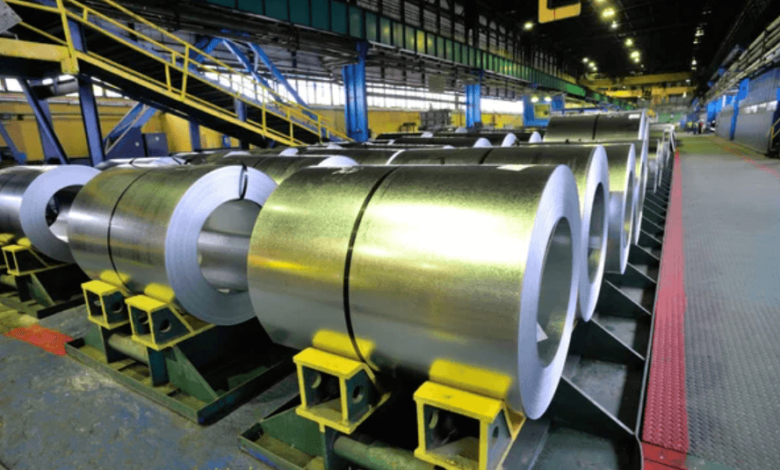Inside a Modern Aluminium Circle Factory

Introduction
In the evolving world of industrial production, aluminum remains one of the most vital materials, known for its strength, light weight, and corrosion resistance. Among its many forms, aluminium circles—or aluminum discs—serve as the foundation for a variety of products, from cookware to lighting and automotive components. At the core of this supply chain is the aluminium circle factory, an essential facility that transforms raw aluminum into precision-engineered circular blanks ready for high-demand sectors.
Understanding Aluminium Circles
An aluminium circle is a flat, round disc made from aluminum sheets or coils. These circles are produced in multiple diameters and thicknesses to match the needs of industries that rely on forming, spinning, and deep drawing. Common applications include frying pans, pressure cooker bases, lamp reflectors, and even electrical enclosures.
Because these discs are often used in high-performance or safety-critical products, precision in manufacturing is paramount—and that’s where the capabilities of a professional aluminium circle factory come into play.
See also: The Role of Indonesian Translation Agencies in Business
The Core of Production
A fully equipped aluminium circle factory is designed with specialized machinery and streamlined workflows. The production line usually starts with aluminum coil stock, which is flattened, lubricated, and then punched or blanked into perfect circular shapes using hydraulic presses or rotary shears.
What separates an average facility from a leading one is the integration of modern automation, quality control systems, and trained professionals who monitor each phase of the process. With precise handling, wastage is minimized and output is maximized.
Machinery That Powers the Process
Aluminium circle production is heavily reliant on advanced equipment. Some of the key machinery in a modern aluminium circle factory includes:
- Circle blanking presses for fast and clean punching
- Annealing furnaces to adjust metal hardness
- Polishing machines for surface refinement
- Automatic stacking and packaging lines
Factories investing in automation see improvements in accuracy, speed, and safety. Additionally, digital monitoring systems now allow managers to track production efficiency in real time.
Raw Material and Alloy Selection
The performance of an aluminium circle starts with the alloy used. Most aluminium circle factories offer products in multiple alloy grades, including:
These alloys are selected based on end-use requirements like formability, conductivity, corrosion resistance, and strength. An experienced factory will ensure traceability of material and maintain detailed certification for each batch.
Cookware Industry Demand
One of the largest consumers of aluminium circles is the global cookware industry. High-end pots, pans, and pressure cookers all begin as round aluminum discs. The aluminium circle factory plays a vital role in supplying discs that are food-safe, uniform in thickness, and able to handle heat and pressure without cracking.
Factories producing for this market often offer additional treatments such as:
- Degreasing and cleaning to remove oil
- Anodizing or surface coating for non-stick performance
- Protective film lamination to prevent scratches during transport
Electrical and Lighting Applications
Beyond cookware, aluminium circles are essential in lighting products like reflectors, lamp holders, and covers. Because aluminum reflects up to 90% of visible light, these discs are often mirror-polished and coated.
An aluminium circle factory serving this segment will typically offer polishing and brightening services. Circles for electrical use may also need tighter tolerance controls and customized packaging to avoid surface defects.
Automotive and Machinery Uses
With the push for lighter vehicles, the automotive industry has embraced aluminum components. Circles are used in fuel tanks, brake parts, gear casings, and under-hood applications.
Factories that cater to the automotive industry are required to meet strict quality and performance standards, including tensile strength tests, corrosion resistance evaluations, and exact thickness control.
Moreover, OEM clients may request proprietary sizes or alloy blends, which only advanced aluminium circle factories with in-house research and development capabilities can deliver.
Environmental Responsibility
Today’s aluminium circle factories are increasingly adopting sustainable practices to minimize their environmental impact. Some of these initiatives include:
- Using recycled aluminum to reduce resource extraction
- Energy-efficient furnaces and machinery
- Water treatment and reuse systems
- Minimized scrap and waste through digital cutting layouts
Factories aligned with green manufacturing principles are often preferred by international buyers, especially in Europe and North America, where regulations are stricter.
Certifications and Compliance
Quality assurance is non-negotiable in a high-functioning aluminium circle factory. Compliance with international standards such as:
- ISO 9001: Quality Management
- ISO 14001: Environmental Management
- RoHS and REACH compliance for restricted materials
- SGS and BV inspection
These certifications give confidence to customers that the products they receive are consistent, safe, and legally compliant.
Packaging and Logistics
An aluminium circle is a precision product, so how it’s packaged matters. Top-tier factories invest in secure packaging that protects discs during transit. Common practices include:
- Plastic wrap or film to prevent scratches
- Moisture-proof packaging to prevent corrosion
- Wooden pallets and reinforced crates for export
Factories close to major ports or logistics hubs also benefit from lower shipping costs and faster international delivery times.
Global Market Position
China remains a global leader in aluminum production, and many world-class aluminium circle factories are based there.
Their strengths lie in:
- Scalability of production
- Cost-effective pricing
- Quick turnaround for large orders
- Technical customization for diverse industries
Conclusion
The aluminium circle factory a cornerstone of many industries. From cookware and electronics to automobiles and lighting, the demand for high-quality aluminum discs continues to grow. A reliable factory doesn’t just produce discs—it delivers consistency, innovation, and trust.
With modern machinery, skilled labor, and global logistics support, today’s aluminium circle factories are well-positioned to meet the dynamic needs of the global market. Choosing the right factory can be a strategic move that boosts your product quality, lowers production costs, and strengthens your brand reputation.





